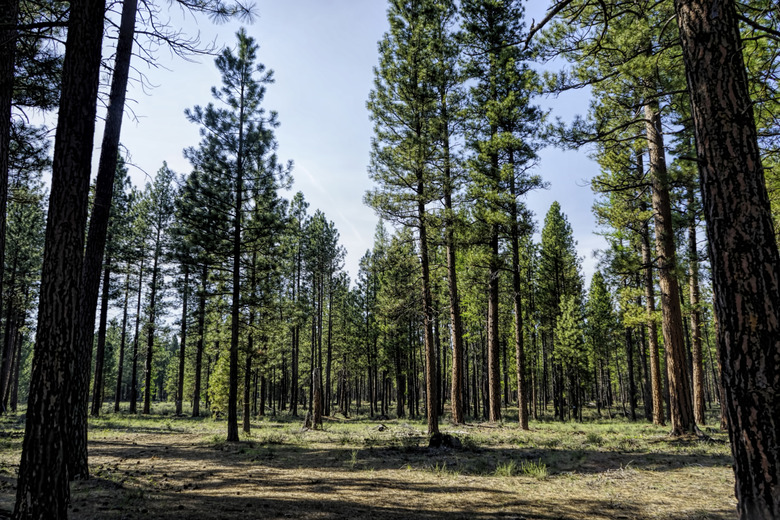Which Pine Trees Are Poisonous?
Pines (Pinus spp.) belong to a huge genus of evergreen trees that vary widely in size and form. Most are able to tolerate severe growing conditions, including drought, harsh winds and poor soil. The needles of many pine trees are toxic and may be dangerous, particularly to cattle and other livestock.
Some plants tagged as pines, including Norfolk Island pine (Araucaria heterophylla, USDA zones 9-11) and Yew pine (Podocarpus macrophyllus, zones 7-9), are not true pines, but they both contain toxic compounds and should be planted with care when you're looking for evergreen trees to grace your yard.
Tip
The needles of some pine trees, such as ponderosa pine, and other evergreens that are not actually pines, such as Norfolk Island pine, may be toxic to humans, livestock and other animals.
Pine Needles and Livestock
Pine Needles and Livestock
The needles of at least 20 familiar pine trees are toxic and present serious risk to livestock. Although the needles, as well as the bark and branch tips, are toxic to horses, goats and sheep, cattle are especially susceptible to potentially lethal reactions, including premature births and miscarriages.
Pine trees that present a danger to livestock include ponderosa pine (Pinus ponderosa, zones 3-7); lodgepole pine (Pinus contorta var. latifolia, zones 3-7); and Monterey pine (Pinus radiata, zones 7-10).
Although some cattle are more resistant, others may abort unborn calves within two weeks after eating very small amounts. Sheep may give birth to dead lambs after eating pine needles. Cattle that eat large amounts of pine needles may also develop neurological or renal disease.
Pine Needle Risk
Pine Needle Risk
Native Americans and other cultures have brewed pine needles into tea for medicinal use for centuries, including ponderosa pine. Pine needles, in general, have been used for respiratory problems and externally for a number of skin conditions. However, miscarriage, low birth weight and other similar toxic reactions may occur in humans and domestic animals after eating pine needles. The risk may not be as severe and life-threatening as it is for cattle and other livestock. Although people often enjoy pine needle tea with no ill effect, pine needles are not recommended for use by humans and pets.
Norfolk Island Pine
Norfolk Island Pine
Norfolk Island pine (not a true pine), also known as Australian pine, is an evergreen plant most often grown indoors; however, the plant is suitable for growing outdoors in USDA zones 9 through 11. The plant may cause vomiting and depression when ingested by cats and dogs. Norfolk Island pine is believed to be safe for humans; however, some people may experience skin irritation after handling the plant.
Yew Pine (Japanese Yew)
Yew Pine (Japanese Yew)
Yew pine (not a true pine), also known as Buddhist pine or Japanese yew, is an attractive garden plant, favored for its bright green leaves and easy growth habits. However, the fleshy seeds of the yew pine, resemble fruit and are mildly toxic when eaten.
Symptoms of ingestion include nausea, vomiting and diarrhea, according to the ASPCA's Animal Poison Control Center. Ingestion of yew pine may also cause vomiting and diarrhea in domestic animals, including dogs, cats and horses.
